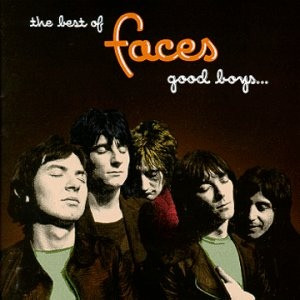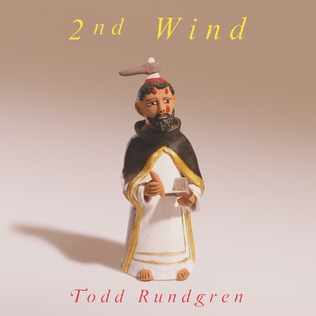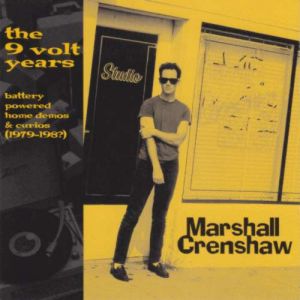Meanwhile, with both Rod and the band’s catalog on their roster, Warner Bros. compiled Snakes And Ladders, subjectively subtitled Best Of Faces to make the most of it. It’s an odd set; the cover art is a collage of photos featuring several shots of interim bassist Tetsu Yamauchi (who plays on exactly one track) but none of Ronnie Lane. More to the point, none of Ronnie’s lead vocals are included. Obviously, they knew where the money was.
The album opens with “Pool Hall Richard”, a standalone single and a decent rocker, then meanders oddly through the catalog, stopping at obvious hits like “Stay With Me” and “Ooh La La”. The instrumental “Pineapple And The Monkey” and “Around The Plynth” are particularly odd choices. Side two sports the mildly disco “You Can Make Me Dance, Sing Or Anything (Even Take The Dog For A Walk, Mend A Fuse, Fold Away The Ironing Board, Or Any Other Domestic Shortcomings)”, another standalone single, but only the original LP has the alternate single take of “Had Me A Real Good Time”.
Only eight of the tracks were repeated on the superior Good Boys… When They're Asleep compilation, released 23 years later. This set moves chronologically, covering much more of the band’s breadth. It’s also a better tribute to Ronnie Lane, given the inclusion of “Debris”, “You’re So Rude”, and “Glad And Sorry”, though it pointedly hypes the connection to Rod’s solo career in the packaging. Along with “Pool Hall Richard” and “You Can Make Me Dance”, the set includes “Open To Ideas”, a soulful unreleased track from the band’s final sessions.
The set was spearheaded by Ian McLagan, whose enthusiasm also drove the next major archival release. Besides sporting the greatest box set title of all time, Five Guys Walk Into A Bar… provides an exhaustive look at the band on four discs. Less than half of the tracks were from the original albums (including the two singles and outtakes from Good Boys), filling up the balance with B-sides, alternate takes, rehearsals, live performances, BBC appearances, and unreleased stuff. Ten years later, 1970-1975: You Can Make Me Dance, Sing Or Anything… boxed up the original four albums, each bolstered with extras on the CD edition, and added a fifth disc of Stray Singles & B-Sides. And ten years after that, Faces At The BBC delivered eight hours of exactly that over eight CDs and one Blu-ray. There’s a lot of repetition, but you also get their reverent renditions of Christmas carols.
Between those sets, Faces are covered. Certainly no other band has gotten more mileage out of ellipses.
Faces Snakes And Ladders/Best Of Faces (1976)—3
Faces The Best Of Faces: Good Boys… When They're Asleep (1999)—4
Faces Five Guys Walk Into A Bar… (2004)—3½
Faces 1970-1975: You Can Make Me Dance, Sing Or Anything… (2015)—3½
Faces Faces At The BBC: Complete BBC Concert & Session Recordings 1970-1973 (2024)—3
.jpg)

.jpg)


:format(jpeg):mode_rgb():quality(90)/discogs-images/R-5140395-1429373655-7601.jpeg.jpg)
